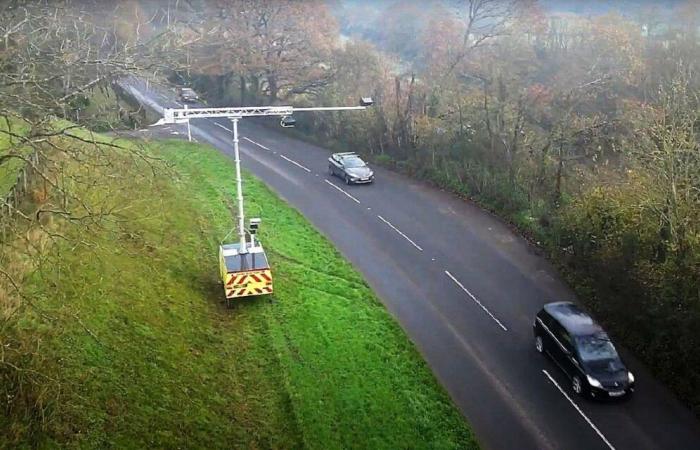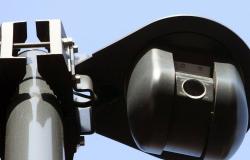Stop drugged or excessively drunk drivers before they do something irreparable. This is the objective of a test, described by its promoters as “a world first”, which is currently taking place in two counties of England, Devon and Cornwall, reports the BBC. This experiment is based on cameras, equipped with artificial intelligence (AI), positioned overlooking the road, at the end of a metal arm, and which are supposed to detect abnormal behavior.
“The technology monitors several attributes, for example how a car moves on the road. If the vehicle does not behave as expected, the system can report this and an interception team, further down the road, can stop the driver for further investigation,” explains, to our colleagues at Top Gear, Geoff Collins, managing director of Acusensus, the Australian company that makes the camera. The investigation may include an alcohol and drug test.
Help the police
The scheme aims to help police forces who “can't be everywhere”, says Commissioner Simon Jenkinson, whose team polices the two counties' 14,000 kilometers of roads. The experiment should make it possible to adjust the system and find “a reasonable balance between reporting everyone and stopping one car out of 10,000”, specifies the boss of Acusensus, whose technology is already in use. , since this year, to help British police spot drivers who use a mobile phone while driving or who do not wear their seat belt.
Could such an innovation happen in France? Everything will depend on the future government. The previous one, under Michel Barnier, had included, in his 2025 budget, the objective of adding AI functionalities to “several hundred” existing automatic radars, in order to detect more offenses. But the document highlighted by France Info at the end of October did not mention the detection of alcoholic behavior.
In France, “no political decision” on the use of AI
Contacted by Le Télégramme, a spokesperson for Road Safety ensures that “the new capabilities offered today by artificial intelligence make it possible to better technically envisage the automatic detection and reporting of offenses such as the telephone held in the hand, not wearing a seat belt or even not respecting safety distances.” But she recalls that, “however, no political decision has been taken to start an approval procedure or to consider deployments. This type of decision is most often made within the framework of an interministerial road safety committee. Similar committee met in July 2023, chaired by Élisabeth Borne, and the previous one in 2018.
General delegate of the 40 million motorists association, Pierre Chasseray said he was in favor of experimenting with AI cameras to identify “the use of alcohol and narcotics, responsible for one in two fatal accidents” , on the Sud Radio antenna. Its association is, on the other hand, much more critical of other uses, such as the detection of safety distances and the principle of automatic verbalization: they “have no real road safety issues” and “do not only allow greater financial interests,” she argues in a press release.






